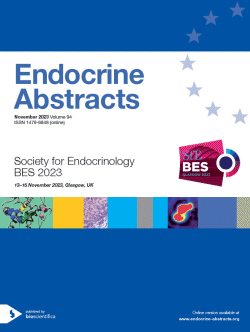Searchable abstracts of presentations at key conferences in endocrinology

Society for Endocrinology BES 2023
Glasgow,
UK
13 Nov 2023 - 15 Nov 2023

SfE BES is the UK's leading endocrinology meeting. It will return to Glasgow in 2023.



